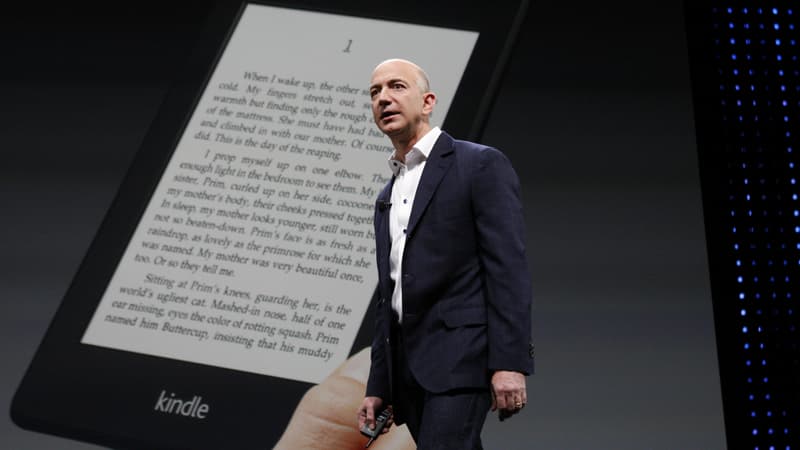“Fake books, fake authors, real scam.” As a cry for help, Ulrich Genisson tries to warn about a problem that has become recurrent on the Amazon platform: the publication of a plethora of “fake jobs” generated by artificial intelligence.
This expert in the ketogenic diet (a diet with a very low carbohydrate content compensated by a lipid boost, Editor’s note), who transmuted his passion into work, made this problem his fight.
The author, with a touch of humor, takes the example of a certain Allan Trevor. “This author writes about anything, in every language.”
UFOs, chicken and cannabis
Once on this author’s Amazon page, the observation is clear. Hypnosis, diet, UFOs, Stoic Bible, raising chickens. All topics are covered by Allan Trevor, who has published no less than 1,418 titles. Among the most expensive, some are sold for more than 20 euros, such as a book, in French, dedicated to the cultivation of cannabis, although it is illegal in France. According to reviews, it has been sold for more than a year.
This profusion of fake books is due in particular to a tool called Kindle Direct Publishing. It allows anyone to edit books, without controls or reviews. Amazon is then responsible for printing them and then marketing them, both in paper and digital formats. The American giant can also pay royalties to authors who allow it to integrate their books into its Kindle Unlimited subscription.
In addition to this publishing activity, Amazon offers to promote books on its own platform, turning its authors into advertisers. The company is then paid to promote a book. Faced with this profusion of fake books sold at sometimes high prices, some literary criminals may be tempted to buy advertising to legitimize the writings of their AI.
For his part, Ulrich Genisson also deplores a strategy of “recycling” works. “A fake author can publish a fake book and add hundreds of positive reviews about it. But then real reviews arrive, from really disappointed customers. The rating of the book deteriorates and, after a certain threshold, the book is removed from the list. sale on the platform. Before being republished with another name and another cover.”
These AI-generated books were recently described by Renaud Lefebvre, director general of the National Union of Publishers, to Le Monde as “parasitic content obtained by digestion of protected works.”
Three books published per day, maximum
Amazon, for its part, defends itself by ensuring that “it has not observed a peak in the number of publications due to the greater availability of generative AI tools.” “Our Kindle Direct Publishing content policies require authors and publishers to accurately inform us if their content was generated by artificial intelligence,” an Amazon spokesperson told Tech&Co.
However, given the situation, the American giant was forced to take measures. In September 2023, Amazon introduced a limit for its authors, who now no longer have the right to publish more than three books… per day.
If books generated by artificial intelligence represent a big challenge for Amazon, the company has recently been singled out for promoting conspiracy books, this time written by real authors. A report from researchers at AI Forensics and Check First, published on December 11, highlighted an “inadequate” Amazon algorithm, which promotes controversial books.
Source: BFM TV


